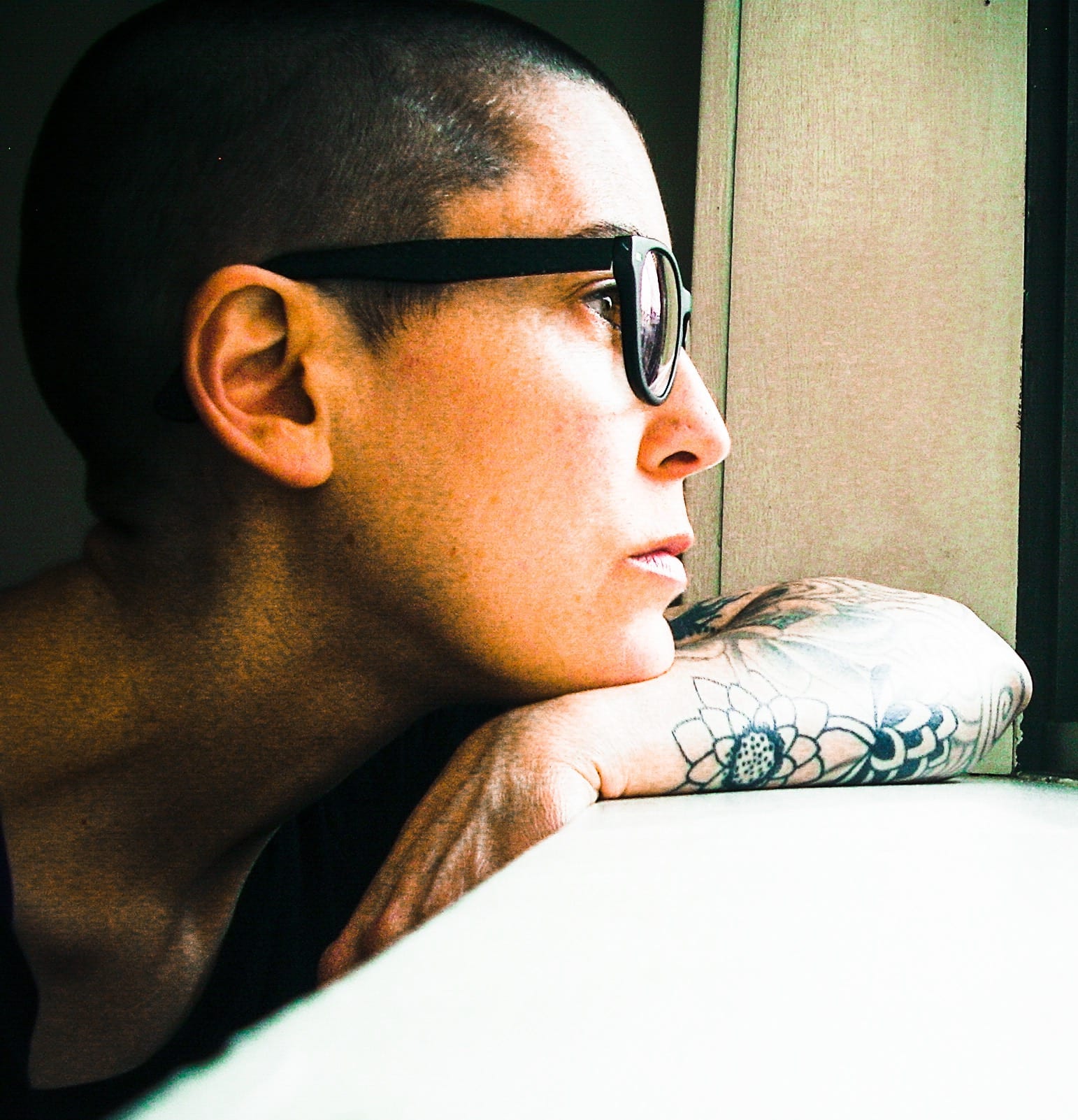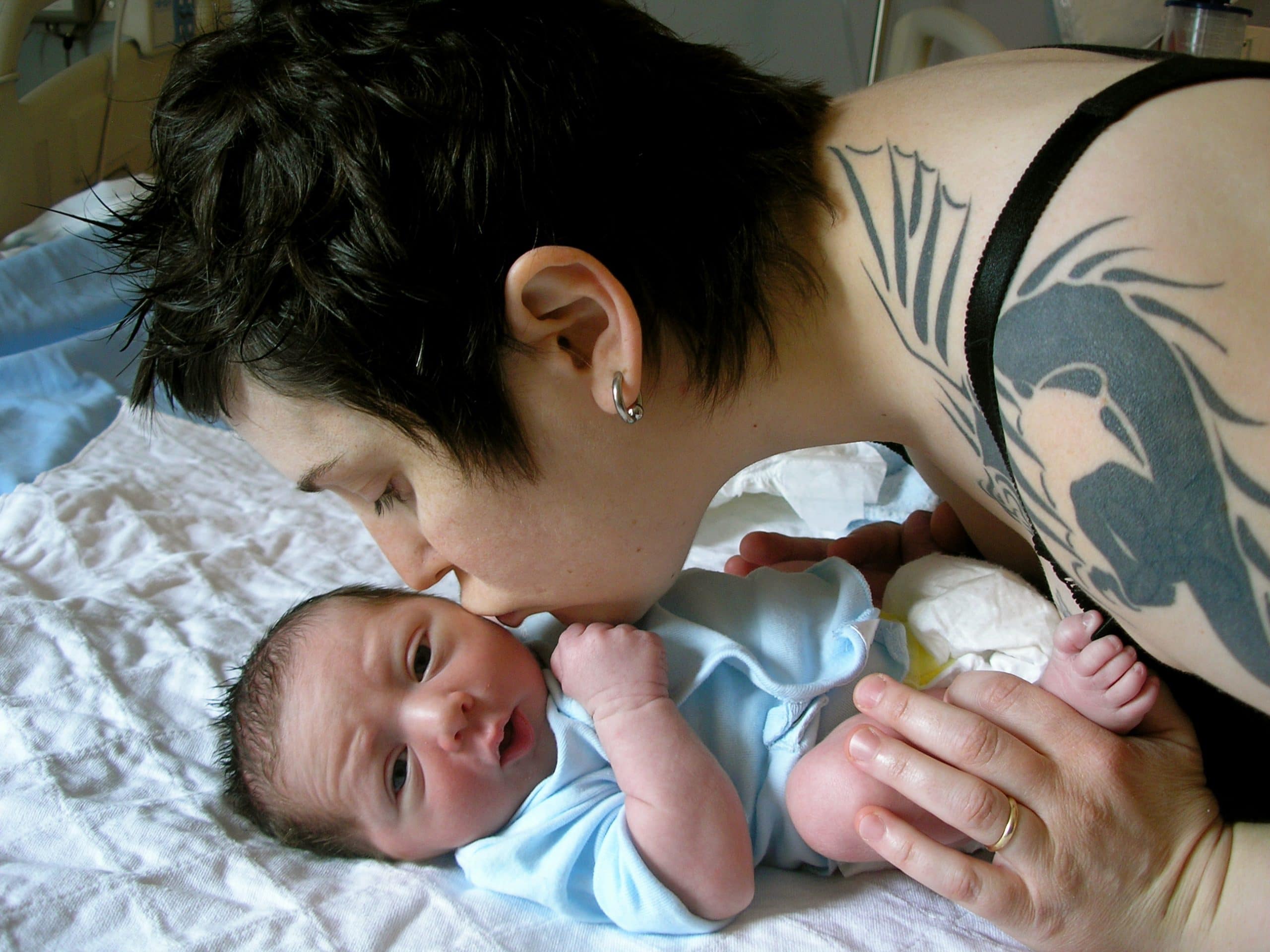Written by Zso, staff member, Halifax Central Library, opens a new window
Leading up to Trans Parent Day on November 7, 2021, we're sharing Library staff member Zso's parenting experience. Trans Parent Day is celebrated annually, on the first Sunday of November.
The taxi driver was loading our luggage into the trunk of the cab and pointed to a backpack my son was carrying: "Is she going to keep that with her?"
"He," I said, "yes, he will."
The driver looked over at me: "He? You sure about that?"
"Yessssss."
Although my son is a cisgender, opens a new window boy, he is regularly misgendered, opens a new window by strangers. He prefers to wear his hair long and pink is his favourite colour. In every other way, he is a pretty conventional 12-year-old boy. Even so, people take one look at his hair, immediately assume that he is a girl, and apply "she/her" pronouns to him.
I asked once whether this bothers him. He said that it does, but that he doesn't know how to deal with it. So, I speak up for him: politely correcting others' language, making sure that he's seen. I get it because it happens to me too.
I'm a transgender parent. I identify as agender which, for me, means that I don't relate to a particular binary gender (man or woman) or any other gendered category. My pronouns are "they/them," but I'm constantly misgendered whenever I speak on the phone or leave the house. Although my gender expression is androgynous, people usually assume that I am a woman. Like I do with my son, I sometimes casually insert my pronouns into conversations when I am misgendered. More often, I just frown under my mask and let it slide. I don't have the energy to have this conversation multiple times a day, and risk the backlash that it can bring.
Misgendering invalidates a person's identity; it is demoralizing and damaging. Most of the time, misgendering comes from a lack of awareness, and while this is an unconscious thing, it still hurts. Deliberate, intentional misgendering, on the other hand, may be considered a form of harassment and a violation of the Nova Scotia Human Rights Act, opens a new window.
More and more, I see my cisgender allies making an effort to learn how to be more inclusive, opens a new window in the language they use. This is heartening, and it also helps take the pressure off of trans people to educate others. Really, it's everyone's responsibility to figure how to treat trans and other marginalized people with respect.
Like many parents, I find it easier to speak on my kid's behalf than to stand up for myself. But, in order to be the best that we can be, trans parents—all parents—need to advocate for ourselves, too.
Recommended reads
To read more about transgender parents and our kids, check out these books from Halifax Public Libraries' collection.
About the staff blogger

Zso is a Branch Services Lead with Halifax Public Libraries.



Add a comment to: Transparenting: Zso’s Experience and Recommended Reads